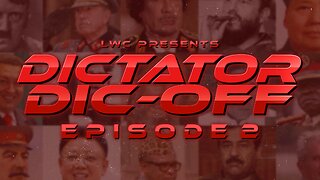#233 Universal Basic Income (UBI)
Universal Basic Income (UBI) is a social policy concept in which the government provides all citizens or residents of a country with a regular, unconditional cash payment. This payment is typically made on a regular basis, such as monthly, and is intended to cover basic living expenses, regardless of an individual's employment status or income level. The key features of UBI include:
Unconditional: UBI is typically given without any means-testing or work requirements. Every eligible individual, regardless of their income, employment status, or wealth, receives the payment.
Regular: Payments are made at regular intervals, such as monthly, to ensure a consistent income for recipients.
Cash: UBI is provided in the form of cash, which allows individuals to spend it on their most pressing needs, whether it's food, housing, healthcare, education, or other necessities.
The goals of UBI are multifaceted:
Poverty Reduction: UBI aims to reduce poverty by providing a financial safety net for all citizens, including those who may not qualify for traditional welfare programs.
Income Inequality: Advocates argue that UBI can help reduce income inequality by redistributing wealth and ensuring that everyone receives a minimum level of income.
Simplicity: UBI simplifies the welfare system by replacing numerous means-tested programs with a single, straightforward cash payment.
Financial Security: UBI provides individuals with financial security, helping them cope with unexpected expenses, job loss, or economic downturns.
Encouraging Entrepreneurship: Some proponents believe that UBI can foster entrepreneurship and innovation by providing a financial cushion that allows individuals to take risks and pursue their passions.
Automation: With concerns about job displacement due to automation and artificial intelligence, UBI is often discussed as a way to address potential future unemployment and job market shifts.
It's important to note that UBI is a topic of ongoing debate, and opinions about its feasibility, cost, and potential impact vary widely. Critics argue that implementing UBI on a large scale may be prohibitively expensive, lead to inflation, or discourage work. Supporters, on the other hand, believe that UBI can be a valuable tool for addressing poverty and inequality in society.
Several countries and regions have experimented with UBI pilot programs, and some cities and states have also considered or implemented variations of UBI to test its effectiveness. The discussion around UBI continues to evolve, and its implementation remains a subject of political and economic debate in many parts of the world.
www.antharas.co.uk/ companies website or top book distributors!
#BusinessStrategy
#Entrepreneurship
#Leadership
#Management
#Marketing
#Finance
#Startups
#Innovation
#Sales
#SmallBusiness
#CorporateCulture
#Productivity
#SelfDevelopment
#SuccessStories
#PersonalBranding
#Networking
#Negotiation
#BusinessEthics
#TimeManagement
#GrowthStrategies
#MarketAnalysis
#BusinessPlanning
#FinancialManagement
#HumanResources
#CustomerExperience
#DigitalTransformation
#Ecommerce
#SocialMediaMarketing
#BusinessCommunication
-
 LIVE
LIVE
Tommy's Podcast
4 days agoConviction Cast | James Kunstler, Dave Collum, Tom Luongo (TPC #1,503)
1,022 watching -
 LIVE
LIVE
Benny Johnson
2 hours agoSHOCK: Biden POOPS Pants On Stage At D-DAY Ceremony!? Jill DRAGS Wobbling Joe Away as World Cringes
7,705 watching -
 1:09:20
1:09:20
The Rubin Report
2 hours agoI’m Calling Out Joe Rogan on This!
9.11K19 -
 LIVE
LIVE
LFA TV
6 hours agoTAKING TRUMP'S GUNS! | LIVE FROM AMERICA 6.6.24 11am EST
5,115 watching -
 24:01
24:01
Breaking Points
3 hours agoMorning Joe LOSES IT Over Biden Age Exposé
7.82K19 -
 1:14:18
1:14:18
Michael Franzese
13 hours agoTrump's trial & 2024 Election | Michael Franzese LIVE! | Ep. 6
12K13 -
 1:27:53
1:27:53
Steven Crowder
2 hours agoDictator Dic-Off Evil 8: Crowning the Most Hardened Criminal in History
38.9K102 -
 1:46:20
1:46:20
Graham Allen
4 hours ago🚨Georgia POSTPONES Court Case!! Fani Willis Is DONE!! + Trump Drops VP List!!!!
39K171 -
 2:02:48
2:02:48
Matt Kohrs
14 hours agoGameStop Pushes Higher, Nvidia Smashes Records & Breaking News || The MK Show
34.5K5 -
 LIVE
LIVE
Major League Fishing
1 day agoLIVE Bass Pro Tour: Stage 5, Day 1
221 watching